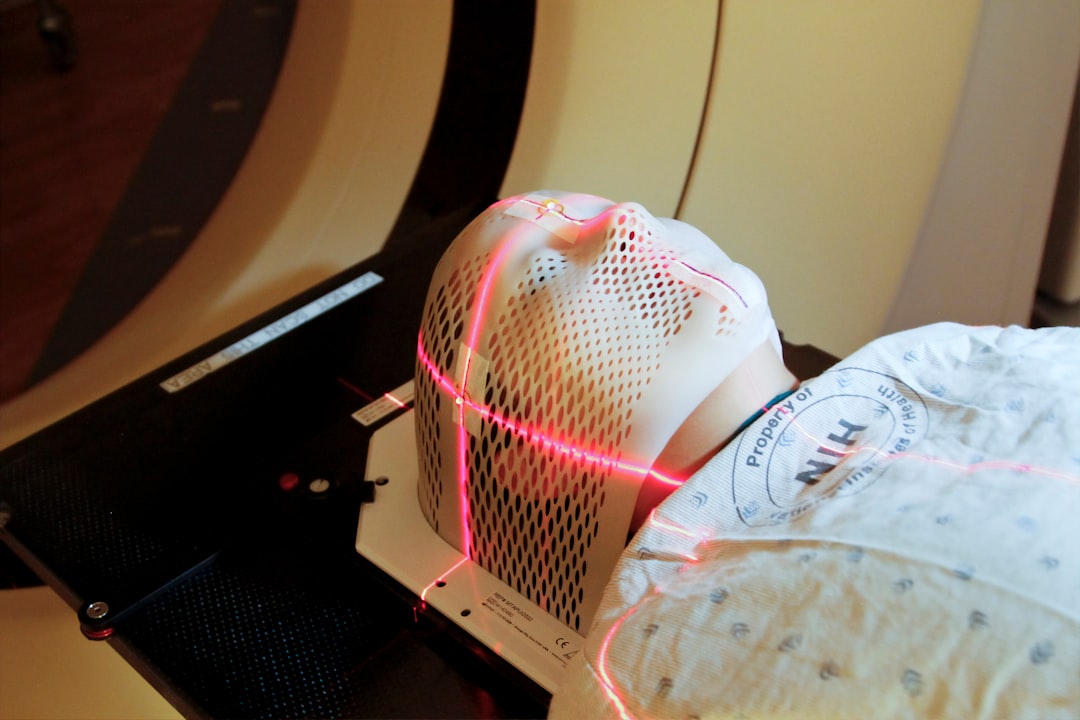Dark skin, also known as melanated skin, contains higher levels of melanin, which is a pigment that gives skin its color. This higher concentration of melanin provides several benefits, such as increased protection against UV radiation and slower aging due to sun exposure. However, it also presents unique challenges when it comes to laser hair removal. The increased melanin in dark skin can absorb more laser energy, leading to potential risks and complications if not properly addressed. Additionally, the structure of hair follicles in dark skin can be different, requiring specialized techniques for effective hair removal.
Furthermore, dark skin can vary in tone and pigmentation, with some individuals having deeper shades of melanin than others. This diversity in dark skin requires a tailored approach to laser hair removal, taking into account the specific needs and characteristics of each individual’s skin. Understanding these differences in dark skin is crucial for both providers and patients to ensure safe and effective laser hair removal treatments.
Dark skin also has a tendency to develop post-inflammatory hyperpigmentation, which is the darkening of the skin in response to inflammation or injury. This means that any trauma to the skin, such as from laser hair removal, can potentially lead to hyperpigmentation if not carefully managed. Providers must be aware of these differences in dark skin and take them into consideration when performing laser hair removal treatments to minimize the risk of complications and achieve optimal results.
Key Takeaways
- Dark skin has unique characteristics that require specialized knowledge for laser hair removal
- Potential risks for dark skin include hyperpigmentation, burns, and scarring
- It is important to find a provider with experience and expertise in treating dark skin
- Preparing for laser hair removal on dark skin may involve avoiding sun exposure and certain skincare products
- Aftercare for dark skin may include using gentle skincare products and avoiding sun exposure to prevent complications
Potential Risks and Complications for Dark Skin
Laser hair removal on dark skin comes with potential risks and complications that are not as prevalent in lighter skin tones. One of the main concerns is the risk of burns and hyperpigmentation due to the higher levels of melanin in dark skin. If the laser energy is not properly calibrated for dark skin, it can be absorbed by the melanin in the skin rather than the hair follicle, leading to burns and discoloration. Additionally, the risk of post-inflammatory hyperpigmentation is higher in dark skin, making it essential for providers to use appropriate techniques and settings to minimize this risk.
Another potential complication for dark skin during laser hair removal is the risk of hypopigmentation, which is the lightening of the skin. This can occur if the laser energy damages the melanocytes, the cells responsible for producing melanin. Dark skin is more prone to this complication, making it crucial for providers to use caution and expertise when performing laser hair removal on dark skin. Furthermore, the risk of scarring is also higher in dark skin, as any trauma to the skin can lead to keloid or hypertrophic scars. Providers must be mindful of these potential risks and complications and take proactive measures to mitigate them when performing laser hair removal on dark skin.
It’s important for individuals with dark skin considering laser hair removal to be aware of these potential risks and complications and seek out qualified providers who have experience working with dark skin. By understanding these challenges, individuals can make informed decisions about their laser hair removal treatments and take proactive steps to ensure their safety and well-being.
Finding a Qualified Provider for Laser Hair Removal
When seeking laser hair removal for dark skin, it’s crucial to find a qualified provider with experience and expertise in treating darker skin tones. Not all laser technologies are suitable for dark skin, and not all providers have the necessary training to perform laser hair removal on dark skin safely and effectively. It’s essential to research and select a provider who has a proven track record of working with dark skin and can demonstrate their proficiency in addressing the unique challenges associated with laser hair removal on darker skin tones.
One way to find a qualified provider for laser hair removal on dark skin is to seek recommendations from friends or family members who have similar skin tones and have undergone successful laser hair removal treatments. Additionally, conducting thorough research online and reading reviews from individuals with dark skin who have had positive experiences with laser hair removal can help identify reputable providers. It’s also important to schedule consultations with potential providers to discuss their experience with dark skin and ask specific questions about their approach to laser hair removal for darker skin tones.
Furthermore, individuals should inquire about the type of laser technology used by the provider and ensure that it is suitable for dark skin. Laser systems such as Nd:YAG or diode lasers are often recommended for dark skin due to their ability to safely target hair follicles without causing damage to the surrounding skin. By taking the time to find a qualified provider with expertise in treating dark skin, individuals can significantly reduce the risk of complications and achieve optimal results from their laser hair removal treatments.
Preparing for Laser Hair Removal on Dark Skin
| Factors to Consider | Information |
|---|---|
| Skin Type | Dark skin requires specialized lasers for safe and effective hair removal. |
| Potential Risks | Risks include hyperpigmentation, burns, and scarring if not performed by a skilled professional. |
| Treatment Sessions | Multiple sessions are usually required for optimal results on dark skin. |
| Aftercare | Post-treatment care may include avoiding sun exposure and using gentle skincare products. |
Preparing for laser hair removal on dark skin requires careful consideration and proactive measures to ensure the safety and effectiveness of the treatment. One essential step in preparing for laser hair removal is to avoid sun exposure and tanning beds leading up to the treatment. Dark skin is more prone to hyperpigmentation from sun exposure, so it’s crucial to protect the skin from UV radiation to minimize the risk of post-inflammatory hyperpigmentation following laser hair removal.
Additionally, individuals with dark skin should discontinue any skincare products or medications that increase sensitivity to light, such as retinoids or certain antibiotics, prior to their laser hair removal treatments. These products can make the skin more susceptible to adverse reactions from the laser energy, so it’s important to follow the provider’s recommendations for discontinuing use before the treatment.
Furthermore, individuals should shave the treatment area before their laser hair removal session, as longer hair can absorb more laser energy and increase the risk of burns or discomfort during the treatment. Shaving ensures that the laser energy is effectively targeted at the hair follicles without unnecessary absorption by the hair shaft.
It’s also important for individuals with dark skin to communicate openly with their provider about any concerns or specific characteristics of their skin that may impact the treatment. By preparing adequately for laser hair removal on dark skin, individuals can optimize their treatment experience and minimize the risk of complications.
Aftercare and Maintenance for Dark Skin
After undergoing laser hair removal on dark skin, it’s essential to follow specific aftercare guidelines to promote healing and minimize the risk of complications. One crucial aspect of aftercare for dark skin following laser hair removal is to avoid sun exposure and use broad-spectrum sunscreen regularly. Sun protection is vital for preventing post-inflammatory hyperpigmentation, as dark skin is more susceptible to discoloration from UV radiation.
Additionally, individuals should avoid using harsh skincare products or exfoliants on the treated area following laser hair removal. These products can irritate the skin and increase the risk of post-inflammatory hyperpigmentation, so it’s important to stick to gentle skincare routines during the recovery period.
Furthermore, individuals with dark skin should moisturize the treated area regularly to promote healing and soothe any potential irritation from the laser treatment. Using fragrance-free and hypoallergenic moisturizers can help maintain the skin’s barrier function and reduce the risk of adverse reactions following laser hair removal.
It’s also essential for individuals with dark skin to attend follow-up appointments with their provider as recommended to monitor their progress and address any concerns or complications that may arise. By following proper aftercare guidelines and staying in communication with their provider, individuals can support optimal healing and long-term results from their laser hair removal treatments on dark skin.
Managing Expectations for Laser Hair Removal on Dark Skin

Managing expectations for laser hair removal on dark skin is crucial for ensuring satisfaction with the treatment outcomes. It’s important for individuals with dark skin to understand that multiple sessions are typically required to achieve significant hair reduction, as darker hair on darker skin may require more treatments for optimal results. Additionally, individuals should be aware that some hair may not be completely eliminated by laser hair removal, particularly fine or vellus hairs that are less responsive to treatment.
Furthermore, individuals should understand that there may be some temporary side effects following laser hair removal on dark skin, such as redness or mild swelling. These side effects typically subside within a few days to a week after treatment and are a normal part of the healing process.
It’s also important for individuals with dark skin to have realistic expectations about the level of discomfort they may experience during laser hair removal treatments. While advancements in laser technology have made treatments more comfortable, some level of discomfort may still be present, particularly in sensitive areas or areas with denser hair growth.
By managing expectations and understanding the potential outcomes of laser hair removal on dark skin, individuals can approach their treatments with a realistic mindset and appreciate the gradual progress towards smoother, hair-free skin.
Exploring Alternative Hair Removal Methods for Dark Skin
In some cases, individuals with dark skin may explore alternative hair removal methods if they are not suitable candidates for laser hair removal or prefer non-laser options. One alternative method for hair removal on dark skin is electrolysis, which uses a fine needle to destroy individual hair follicles through heat or chemical energy. Electrolysis is suitable for all skin types and can effectively target hairs that may not respond well to laser treatment, such as fine or light-colored hairs.
Another alternative method for individuals with dark skin is waxing or sugaring, which involves applying a sticky substance to the skin and then removing it quickly to pull out unwanted hairs from the root. While waxing and sugaring can be effective for temporary hair removal, they may cause irritation or ingrown hairs in some individuals with darker skin tones.
Additionally, individuals with dark skin may consider depilatory creams as an alternative method for removing unwanted hair. Depilatory creams contain chemicals that break down the protein structure of the hair, allowing it to be easily wiped away from the surface of the skin. However, it’s important for individuals with dark skin to perform a patch test before using depilatory creams to ensure that they do not cause irritation or adverse reactions.
Ultimately, exploring alternative hair removal methods for dark skin can provide individuals with options that align with their preferences and specific needs. By considering alternative methods alongside laser hair removal, individuals can make informed decisions about their hair removal treatments and find an approach that best suits their unique characteristics and goals.
If you’re considering laser hair removal for dark skin, you may also be interested in learning about the cost of facial laser hair removal. In a recent article on InLaserHairRemoval.com, they delve into the factors that influence the cost of facial laser hair removal and provide valuable insights for those considering this treatment. Check out the article here to gain a comprehensive understanding of the financial aspects of this procedure.
FAQs
What is laser hair removal?
Laser hair removal is a cosmetic procedure that uses a concentrated beam of light (laser) to remove unwanted hair. The laser targets the pigment in the hair follicle, damaging it and inhibiting future hair growth.
Is laser hair removal safe for dark skin?
Yes, laser hair removal can be safe for dark skin when performed by a qualified and experienced practitioner using the appropriate laser technology. It is important to use a laser that is specifically designed for dark skin to minimize the risk of pigmentation changes or burns.
What are the benefits of laser hair removal for dark skin?
Laser hair removal can provide long-lasting hair reduction for individuals with dark skin. It can target coarse, dark hair while minimizing damage to the surrounding skin, making it an effective option for those with darker skin tones.
Are there any potential risks or side effects for dark skin?
While laser hair removal is generally safe for dark skin, there is a risk of temporary pigment changes, such as lightening or darkening of the skin. In rare cases, burns or scarring may occur. It is important to consult with a qualified practitioner to minimize these risks.
How many sessions are typically needed for laser hair removal on dark skin?
The number of sessions needed for laser hair removal on dark skin can vary depending on factors such as hair color, thickness, and the specific area being treated. On average, multiple sessions spaced several weeks apart are usually required to achieve optimal results.
Is laser hair removal permanent for dark skin?
Laser hair removal can lead to long-term hair reduction for individuals with dark skin, but it is not always permanent. Some hair may eventually regrow, but it is typically finer and lighter in color. Maintenance sessions may be needed to sustain the results.






